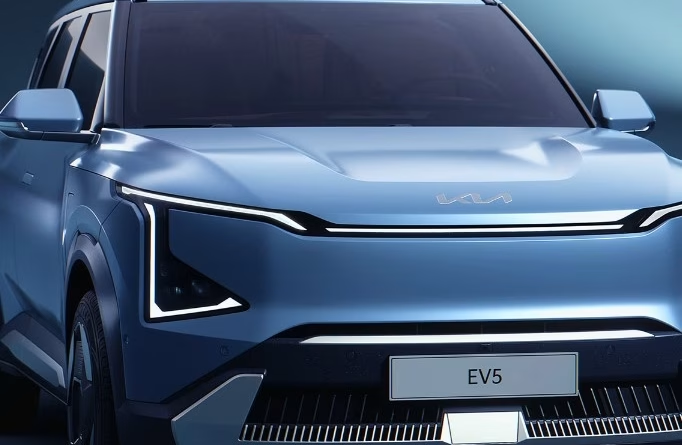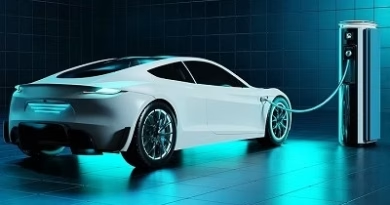Electric Cars in 2025: Are They Really Worth the Hype?
Discover if electric cars in 2025 live up to expectations—benefits, challenges, costs, and real owner experiences for smarter buying decisions
In 2025, electric cars (EVs) have moved from futuristic novelties to mainstream options across Europe, Asia, Africa, and North America. With governments incentivizing clean mobility, battery costs falling, and major automakers rolling out attractive models, the adoption curve is steeper than ever.
But here’s the big question: Are electric cars really worth the hype?
Are they truly cheaper in the long run than gasoline cars? Do they live up to promises of eco-friendliness, innovation, and savings? Or do hidden challenges like battery replacement costs and charging station scarcity make them impractical for certain drivers?
This article dives deep into the real-world pros, cons, and financial math—so you can decide if an EV is the right choice in 2025.
The Benefits Fueling the EV Hype
Lower Running Costs
- Fuel savings: Charging an EV costs up to 70% less than fueling a gas car (source: U.S. Dept of Energy).
- Annual comparison (average US driver, 12,000 miles/year):
| Cost Factor | Gas Car (2025 Avg) | Electric Car (2025 Avg) |
|---|---|---|
| Fuel/Energy (per year) | $1,750 | $500 |
| Maintenance | $900 | $250 |
| 10-Year Repairs | $7,500 | $3,000 |
| Battery Replacement | N/A | $6,000–$9,000 (if needed) |
Learn how smart car upkeep also reduces costs in our Car Maintenance Guide 2025: 10 Tips Every Driver Must Know.
Reduced Maintenance
Electric cars have fewer moving parts than gas-powered vehicles. That means:
- No oil changes.
- No spark plugs or timing belts.
- Regenerative braking extends brake life.
Fleet managers in Singapore reported 40% lower maintenance bills after switching to EVs for urban deliveries.
Advanced Tech Features
Most EVs in 2025 include:
- Driver-assistance features (lane keeping, adaptive cruise control).
- Smart connectivity (apps for remote climate control, over-the-air updates).
- Enhanced safety—many EVs score top marks in crash tests.
Environmental Impact
- Zero tailpipe emissions reduce urban air pollution—a big health benefit in cities like Delhi, Lagos, and Beijing.
- Over 15 years, an EV typically avoids 30–38 metric tons of CO₂ compared to a gas car (IEA).
- Cities offering EV-only lanes or free parking make ownership even more attractive.

Challenges EV Owners Still Face
Higher Upfront Costs
- Average EV price (2025): $33,000–$60,000.
- Average gas car price: $25,000–$40,000.
- Incentives (like U.S. federal tax credits up to $7,500) reduce the gap, but upfront costs remain a barrier.
Charging Infrastructure
- Urban Europe, China, and parts of the U.S. are well-served.
- Africa and rural regions face limited charging points.
- Fast-charging is improving—80% charge in 20–30 minutes on newer EVs—but still not as convenient as a 5-minute gas fill-up.
See how smart investment decisions reduce risks in our Beginner’s Guide: How to Invest Smartly Without Losing Money.
Battery Life & Replacement Costs
- Most EV batteries last 8–12 years.
- Replacement: $6,000–$9,000 (though warranties cover early failures).
- Used EV buyers should always check battery health reports before purchase.
Range Limitations
- Most 2025 EVs offer 220–350 miles per charge.
- Cold weather reduces range by up to 30% (case in Minnesota, USA).
- Long-distance drivers still face “range anxiety.”
Cost Comparison: Electric Cars vs Gas Cars
| Factor | Gas Car (10 yrs) | Electric Car (10 yrs) |
|---|---|---|
| Purchase Price | $30,000 | $35,000 (avg EV) |
| Fuel/Energy | $17,500 | $5,000 |
| Maintenance | $9,000 | $2,500 |
| Repairs | $7,500 | $3,000 |
| Battery Replacement | N/A | $7,000 (if needed) |
| Total | $64,000 | $52,500–59,500 |
On average, EVs save $4,500–$11,500 over 10 years, depending on region and charging habits.
For a detailed comparison, see Electric vs Gas Cars: Which Is Cheaper Long-Term?.
Real-World Owner Experiences
- Berlin commuter: Saves 70% on fuel, charges overnight at home.
- California rideshare driver: Cut fuel costs from $3,200 to $700 annually; $1,000 saved in maintenance over 3 years.
- Tokyo family: Loves low running costs but needs route planning on road trips.
- UK fleet manager: 20 EVs over 5 years—only one battery replacement; £30,000 saved across fleet.
Top Electric Car Models in 2025
- Renault 5 E-Tech (affordable, compact).
- Tesla Model 3 (global bestseller, long range).
- Hyundai Ioniq 6 (efficient, sleek).
- BYD Dolphin (China’s budget-friendly EV leader).
EVs and Environmental Impact
According to BloombergNEF, EV adoption in 2025 will cut oil demand by 2.5 million barrels/day.
But critics note:
- Battery mining (lithium, cobalt) raises ethical and environmental concerns.
- Electric grids in some countries still rely heavily on coal—limiting overall climate benefits.
That’s why regional energy sources matter: EVs in France (nuclear-heavy grid) are much cleaner than EVs in coal-heavy Poland.
Case Studies: Global EV Adoption Stories
Case Study 1: Lagos, Nigeria
A tech worker bought a BYD Dolphin in 2024. Despite limited public charging, home solar charging made it cost-effective. After 18 months, total fuel savings exceeded ₦1.5 million ($1,800).
Case Study 2: Germany
The government subsidized workplace chargers, making EV commuting seamless. Employees collectively saved €120,000 annually in fuel.
Case Study 3: California, USA
An EV rideshare fleet ran 300,000+ miles with minimal maintenance—just tires and brakes—compared to costly engine repairs in their old gas fleet.
Frequently Asked Questions (FAQs)
Q1: Do EVs lose value faster than gas cars?
In 2018, yes. By 2025, popular EVs like the Tesla Model 3 often hold resale value equal to or better than gas counterparts.
Q2: What’s the cheapest EV to own in 2025?
The Renault 5 E-Tech and BYD Dolphin are currently the most budget-friendly.
Q3: Are EVs practical in rural areas?
Only if you have home charging. Public charging remains sparse in rural Africa, South America, and parts of the U.S.
Q4: How do winters affect EVs?
Range drops by 20–30% in freezing conditions, but preconditioning batteries and indoor charging reduce losses.
Are EVs Really Worth It?
So—are electric cars worth the hype in 2025?
- Yes if you live in urban areas with charging access, value lower running costs, and want to reduce environmental impact.
- Maybe not yet if you drive long rural routes with limited charging or can’t afford the higher upfront purchase price.
But overall, EVs are no longer niche—they’re a smart financial and environmental choice for millions worldwide.
Want to keep your EV or gas car reliable? Check out:




Your article helped me a lot, is there any more related content? Thanks!
Can you be more specific about the content of your article? After reading it, I still have some doubts. Hope you can help me.
http://images.google.ki/url?q=https://t.me/s/officials_7k/1100